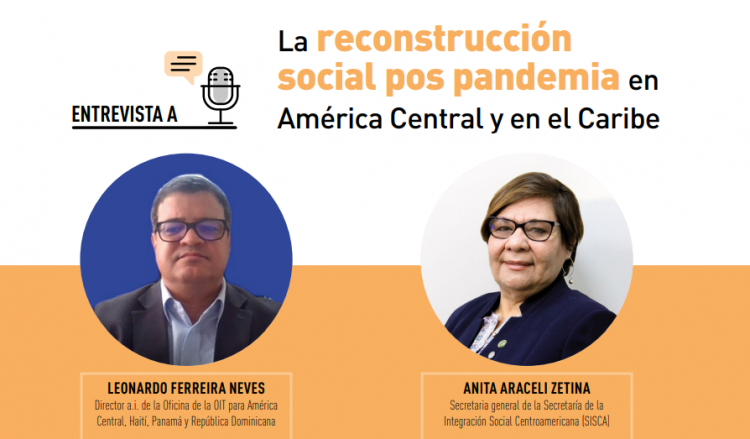Jorge Onrubia, Complutense University of Madrid (UCM-ICEI) & Fedea

The consensus regarding the unprecedented contraction in economic activity that the COVID-19 pandemic is producing worldwide is unanimous, although there are differences in the analysis focusing on the prediction of its duration. It is logical to think that the more successful the combination of healthcare and economic measures, including the timing of their application, the more promising will be the economic and social horizon that each country faces, not forgetting the impossibility of delimiting, at the national level, the consequences of the pandemic.
The health and economic crisis affects everyone, although its impact is not the same, either among countries or among households. In fact, the pandemic is showing its effects more markedly among the most vulnerable groups, and because of their weight in the population, among countries. The consequences of this bias are strongly related to inequality, in both income and wealth, where households with fewer resources, with more insecure jobs, with greater material deprivation in housing, education or health are the ones who are suffering the harshest effects. The correlation between these vulnerability factors, including age and sex, is proving decisive for understanding both the greater spatial concentration of the disease and its effects on well-being. The result is a huge problem for social cohesion, the duration and intensity of which will depend on the strength of the public action undertaken by governments.
A characteristic feature of this crisis is the vindication of the role of fiscal policy. Fiscal policy, unjustly vilified in previous crises due to its erroneous identification with budgetary indiscipline, has suddenly been brought back into the limelight by the unprecedented fall in tax collection due to the economic shut-down caused by widespread lockdowns, together with the urgent need to increase spending on health, education and social protection. However, we must not ignore the fact that providing liquidity effectively and efficiently requires combining monetary and fiscal policies. The magnitude of these increases in public spending can only be financed through substantial public debt, which would be practically impossible to source on the markets through private agents. In this regard, the planned action of the central banks to absorb these volumes of debt is essential, as shown by the swift and correct response from the European Central Bank, with its commitments to acquire assets.
But we cannot assume that fiscal policy will have finished its role once the health crisis is over, something that, unfortunately, we do not yet see with any certainty. On the contrary, there is a significant consensus that it should play a major role in the recovery after the pandemic, as well as in the economic reconstruction and social cohesion. In my opinion, without strong and well-designed fiscal policies, it will be impossible to achieve a solid and lasting economic reactivation, also taking into account the great disparity existing in the starting situations of the major world regions and, of course, between countries.
The main objective for “reconstruction” – a term used by the European institutions – is to achieve the recovery of economic activity, in parallel with an increase in social welfare. But for this to occur it is not enough to simply achieve stable economic growth, it is also necessary to achieve a high degree of social cohesion, which is equivalent to a stable and significant reduction in inequality, in all its aspects. It will, therefore, be necessary to put in place effective inclusive policies in the areas of employment, education, health, housing, social protection and the environment. In addition, it must be borne in mind that we are moving in a scenario of dizzying and unstoppable technological transformation, with everything this means for inequalities.
The European Union has recently launched the pillars for a reconstruction agenda, with the approval of the main lines for the Next Generation EU programme, endowed with €560 billion, of which €310 billion correspond to transfers from the new community budget and the rest being loans. Its distribution among the states will be according to criteria based on the effects of the crisis caused by the pandemic, although always linked to the presentation of projects included in national recovery and resilience plans, defined in accordance with the objectives of the European Semester and oriented to the ecological and digital transitions and the resilience of their economies. Furthermore, additional funding is included until 2022 for the current cohesion programmes and for the European Aid Fund for the Most Disadvantaged, up to a total amount of €750 billion. For its financing, three European tax resources are being considered: on digital businesses, on cross-border emissions of CO2 and on the profits of multinationals. These new figures will have to fit in with domestic taxation and with the international tax coordination initiatives led by the OECD. Without a doubt, this presents enormous fiscal challenges that are not easy to solve.
In Latin America, the driving role of fiscal policy in the economic recovery and social cohesion has recently been highlighted by ECLAC in its report Fiscal Panorama for Latin America and the Caribbean, 2020. It argues it is an essential engine for the sustainable development of the region, and that without its proper functioning there will be a significant setback for most economies. In a similar vein, the recent Latin American Economic Outlook 2020 report, published by the OECD, ECLAC, CAF and the European Commission, points out the great challenge that the region faces with the pandemic, highlighting the need to guide public programmes towards digital transformation, as a way to promote more inclusive and sustainable development. We must be aware of the enormous challenge that this necessary policy orientation poses for the countries in the region, whose welfare states are very narrow and where social protection is far behind European coverage levels.



